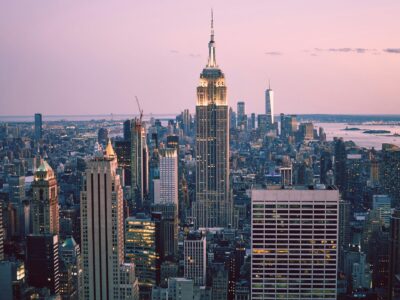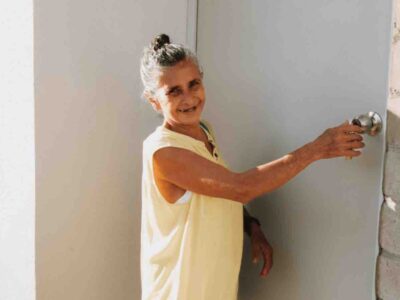ʻAlohilani Resort Waikiki Beach is a paradise in more ways than one. Located at the edge of Honolulu, with access to the city and beach, every guest is given the same impossible choice: relax by the lapping water or take advantage of the urban sprawl.
The resort is named after Queen Lili’uokalani, the last sovereign of the Hawaiian Kingdom, who wrote more than 160 songs and helped pass an act to protect Hawaiian public trails. Her passion for Hawaii’s cultural heritage is instilled in the property, which is located near her holiday getaway that she called “my pretty seaside cottage.” While far from a cottage, the upscale ʻAlohilani, too, preserves her memory and honors Hawaiian culture.
In fact, culture is one of the resort’s key pillars. The shops at ʻAlohilani are a prime example. Kolohe is the state’s first semi-fine jewelry store with an upcycled collection, and locally-owned Kai Coffee is a must-visit, given that Hawaii is the sole location in the U.S. where coffee is grown.
The resort’s outdoor Monument of Light features video reels of local imagery shown every night. Designer Joseph Pa‘ahana said it is “like a fireworks show. It allows visitors time to reflect on their day, especially because it’s a lot of Waikīkī imagery.”
Light Monument. Photo Courtesy REM Public Relations
There is also much to take advantage of in the local area, including the Honolulu Museum of Art, to which guests receive free admission by showing their room key. The nearby Honolulu Zoo shelters endangered species like the black rhino and Galapagos tortoise, and the Waikiki Aquarium is the second oldest public aquarium in the U.S.
Plus, ʻAlohilani is home to a two-story, 280,000-gallon saltwater Oceanarium containing various protected native Hawaiian fish. Guests can sit at O Bar overlooking it, enjoy a local beer, and watch one of the two daily fish feedings.
Oceanarium and O Bar. Photo Courtesy REM Public Relations
Sustainability, in particular, is one of the essential elements of ʻAlohilani’s special formula. The property announced in February 2022 its commitment to becoming Hawaii’s first completely carbon-neutral hotel. It is already well on its way to hitting that goal, achieving carbon neutrality across Scopes 1 and 2 and part of Scope 3 in 2022. To accomplish this monumental feat, which DEKRA will verify, ʻAlohilani charges a carbon neutrality fee of $1.38 per night: a small price to pay for a big environmental impact.
Plus, a collaboration with the nonprofit Hawaiian Legacy Reforestation Initiative (HLRI) will provide offsets in the form of 100,000 newly planted indigenous trees; a $5 tree fee supports the effort to return these species to the islands.
Since 2014, HLRI has planted more than 600,000 endemic trees spanning 1,200 acres in the Hawaiian Legacy Forest, making it the first carbon initiative in the U.S. to be Gold Standard–certified. Each tree is geo-tagged, allowing sponsors to view their relevant information.
Photo Courtesy REM Public Relations
Additionally, ʻAlohilani is one of more than 200 properties managed by Highgate that are powered completely by renewable energy, which is verified by Green-e Energy. This element is just one example of the resort’s dedication to conserving energy and resources. Energy-efficient cooling systems and two electric vehicle charging stations place the vacation spot at the forefront of the energy transition.
Drought-resistant plants and a timed irrigation system help preserve water; ʻAlohilani is also partnered with Waiakea Hawaiian Volcanic Water, which collects fallen rain and melted snow from the base of the Mauna Loa volcano and bottles it in aluminum bottles.
Meanwhile, the decisions to send unused bathroom products to developing countries through Clean The World® and to abandon single-use plastics lead to less waste. And, because Highgate has a partnership with rental company Beach Candy Waikiki, guests earn three credits each night that they can use to rent snorkeling and surfing gear, further contributing to waste reduction.
The culinary offerings are another highlight. Iron Chef Masaharu Morimoto has two restaurants at the resort, which compost food scraps, recycle fryer oil, and use sustainable take-out packaging.
Additionally, the Earth to Cup Menu is a happy hour feature created by Gastronomista Emily Arden Wells and offered at Swell, the bar located by the outdoor saltwater infinity pool. This menu features sustainably and locally farmed ingredients, with each of the four dish options inspired by one of the classical elements.
The Molokai Venison Meatballs, representing land, are sourced from an invasive species to the local environment, while the Oahu Kampachi Ceviche, representing water, is caught using sustainable aquaculture techniques. Not only do locals provide this food, but they also benefit from every order: $1 per check goes to local farmers.
Swell Deck. Photo Courtesy REM Public Relations
The resort’s efforts to make ʻAlohilani a place to enjoy a luxury vacation while contributing to local culture and environment haven’t gone unnoticed. It was awarded the Hawaii Green Business Program in 2020.
“They have shown that becoming greener and more sustainable not only benefits the environment, it makes good business sense,” Gov. David Ige said in a statement.





